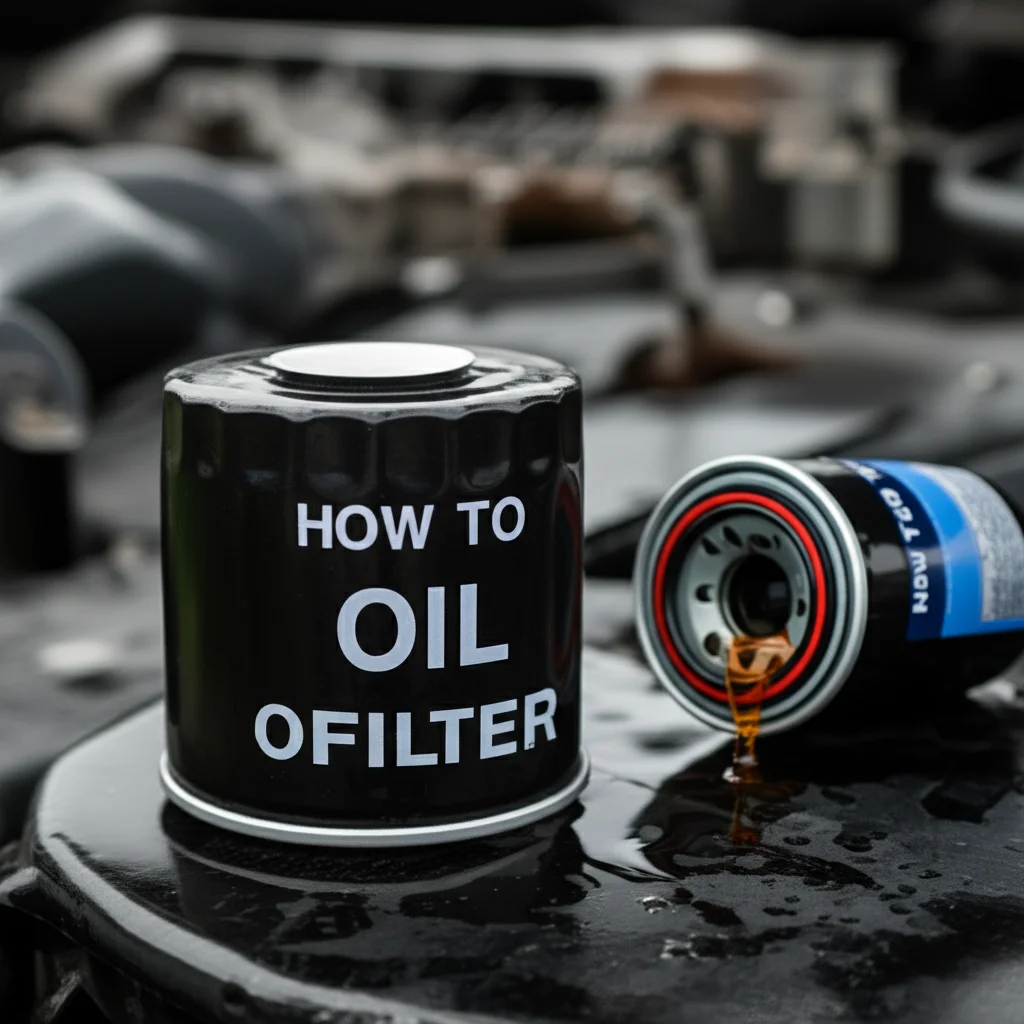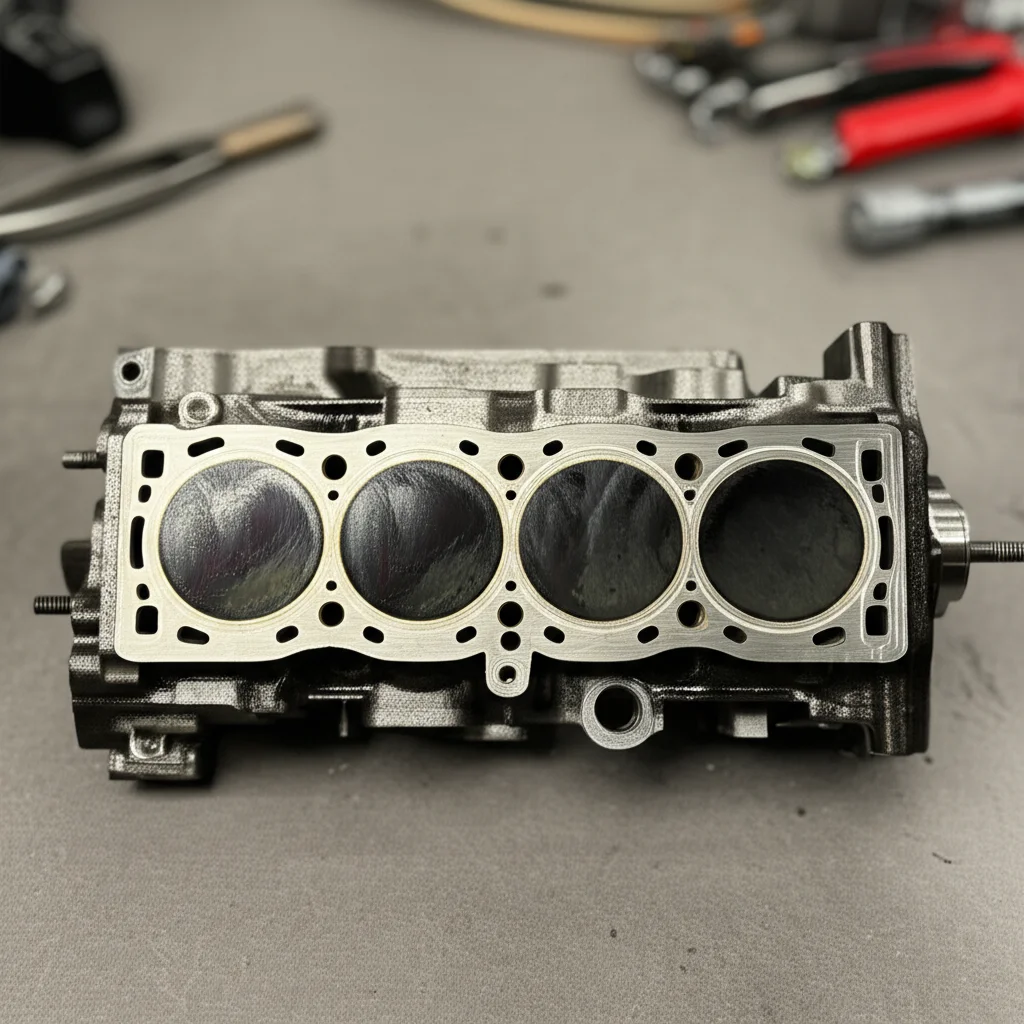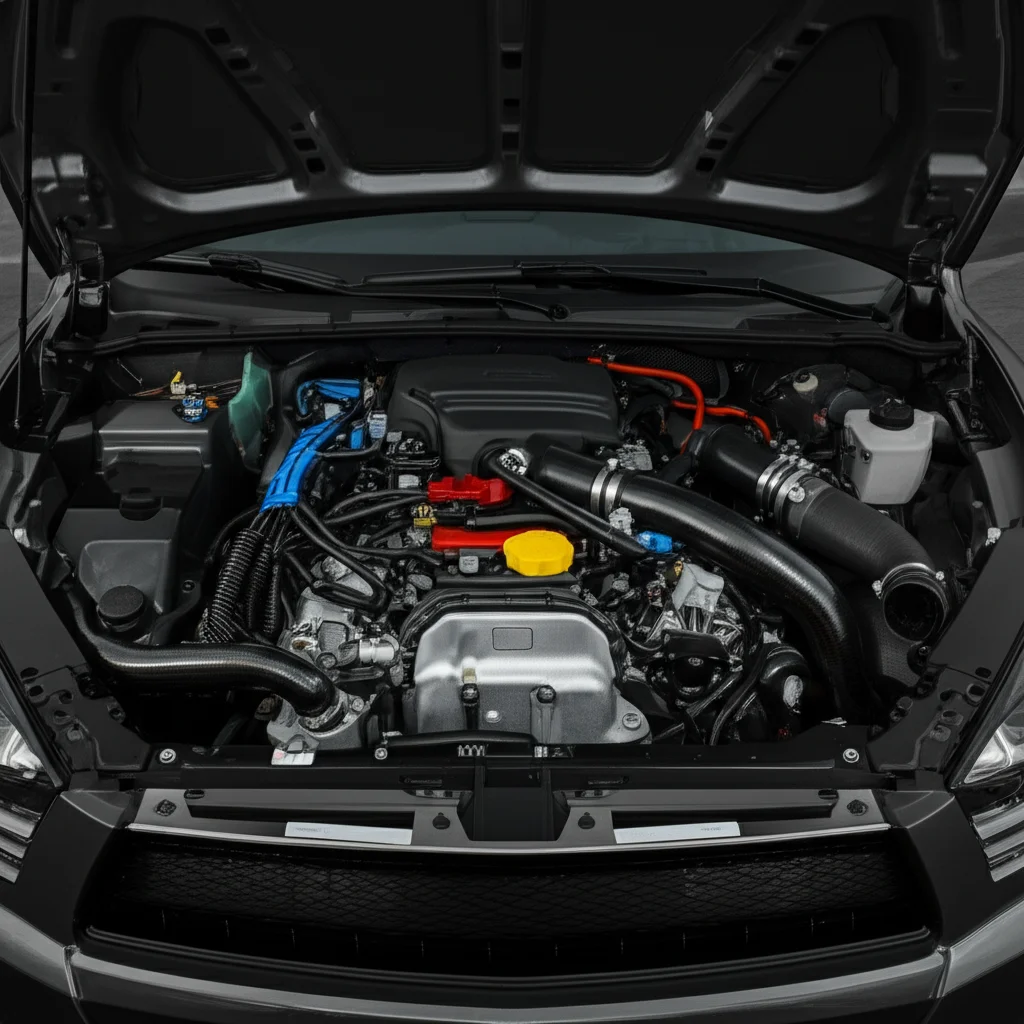· Todd Martin · Automotive Maintenance · 13 min read
How To Clean Lifters Without Removing

How To Clean Lifters Without Removing Your Engine
Have you ever noticed a ticking sound coming from your engine? That familiar noise often points to dirty or clogged lifters. Many car owners dread this issue because they believe fixing it requires costly engine disassembly. I understand that concern.
The good news is you can often clean lifters without removing them. This guide shows you effective methods to quiet those noisy components and improve your engine’s performance. We will discuss causes, symptoms, and practical steps using readily available products. By the end, you will know how to tackle this common engine problem directly.
Takeaway
Cleaning lifters without removal is possible using specific strategies.
- Use high-quality engine oil.
- Perform regular oil changes.
- Integrate engine oil flush products.
- Consider dedicated lifter cleaning additives.
- Address underlying engine issues.
Cleaning lifters without removing them involves using specific engine oil additives and performing a thorough engine oil flush. These methods help dissolve varnish and sludge deposits that cause lifters to stick or become noisy. Regular maintenance and proper oil selection also play key roles.
Understanding Engine Lifters and Their Critical Function
Engine lifters, also called valve lifters or tappets, are small but vital components in your engine. They sit between the camshaft and the valves. Their main job is to transfer the camshaft’s motion to the engine valves, allowing them to open and close. This action ensures proper air-fuel mixture intake and exhaust gas expulsion.
Most modern cars use hydraulic lifters. These lifters rely on engine oil pressure to maintain zero valve lash. Zero lash means there is no gap between the lifter and the valve stem. This design helps the engine run quietly and efficiently. It also eliminates the need for frequent valve adjustments.
When lifters work correctly, they ensure smooth valve operation. This contributes to optimal engine power and fuel efficiency. Dirty lifters, however, cannot maintain this hydraulic pressure properly. This leads to common issues like a ticking sound.
The health of your lifters directly impacts your engine’s overall performance. Neglecting lifter issues can lead to more severe engine problems over time. That is why understanding their function and keeping them clean matters. A well-maintained engine is a happy engine.
Why Lifters Get Dirty: Common Causes of Clogging
Lifters can get dirty for several reasons, mainly related to engine oil quality and maintenance. Over time, engine oil breaks down and forms deposits. These deposits are a primary cause of lifter clogging.
One common reason is infrequent oil changes. When you do not change your oil regularly, the oil becomes saturated with contaminants. These contaminants include carbon, sludge, and varnish. These sticky substances accumulate inside the lifters, especially in the small oil passages. This buildup prevents the lifters from operating freely. It impacts their ability to maintain proper hydraulic pressure.
Using low-quality engine oil also contributes to lifter issues. Cheaper oils may not have the necessary detergents and dispersants. These additives keep the engine clean and suspend contaminants. Without them, sludge and varnish form more easily. These harmful deposits then settle in critical engine parts, including your lifters.
Excessive engine heat can also accelerate oil breakdown. High temperatures cause oil to oxidize and form deposits faster. Short trips where the engine does not reach operating temperature can also be problematic. This type of driving prevents water and fuel contaminants from evaporating from the oil. Over time, these factors lead to dirty, noisy lifters. Understanding these causes helps you prevent them.
Identifying Noisy Lifters: Symptoms to Watch For
Recognizing the symptoms of dirty or faulty lifters helps you address the problem early. The most common sign is a distinct ticking or tapping noise from the engine. This sound usually comes from the top part of the engine, near the valve cover. It often gets louder when the engine is cold and might quiet down slightly as the engine warms up.
This ticking noise happens because the lifter cannot fill with enough oil. This creates a small gap between the lifter and the valve stem. The metal-on-metal contact causes the noise. It is similar to tapping a hammer on a piece of metal. This ticking indicates the lifter is not doing its job correctly.
Other symptoms can include a slight reduction in engine power. You might notice a rough idle or a general lack of responsiveness. These issues occur because the dirty lifters prevent valves from opening or closing fully. This affects combustion efficiency. Sometimes, the engine might even stall or hesitate under acceleration.
If you suspect dirty lifters, listen carefully to your engine. A persistent ticking sound, especially at startup, is a strong indicator. Addressing these symptoms promptly can prevent more serious damage to your engine. I recommend paying attention to these sounds.
The Power of Engine Oil Flushes for Lifter Cleaning
An engine oil flush is a powerful step in cleaning lifters without removing them. This process uses a special chemical cleaner added to your old engine oil. You run the engine for a short period, allowing the flush product to circulate. The cleaner works to dissolve sludge, varnish, and carbon deposits throughout the engine.
These deposits often clog the small passages inside lifters. The flush helps break down these accumulations. It frees up the internal components of the lifters. This allows oil to flow properly, restoring their hydraulic function. After the flush, you drain the old oil and cleaner, then refill with fresh oil and a new filter.
Performing an engine oil flush is a relatively simple procedure. You add the flush product to your engine’s crankcase. Then, you let the engine idle for the time specified by the product manufacturer. This period is typically 10 to 15 minutes. It is important not to drive the car during this process.
Following the flush, you must change your oil and filter immediately. This removes all the dislodged contaminants from the engine. A fresh start with clean oil helps ensure the lifters stay clean longer. I find this method very effective for a comprehensive internal cleaning. You can also clean other engine components without removal, similar to how to clean fuel injectors without removing them or even how to clean an intake manifold without removing it.
Using Dedicated Lifter Cleaning Additives Effectively
Beyond a full engine flush, dedicated lifter cleaning additives offer another way to clean lifters. These additives are designed specifically to target and dissolve deposits in lifters. You add them directly to your engine oil. They work slowly over thousands of miles as you drive your car.
These products typically contain powerful detergents and dispersants. These chemicals break down varnish and sludge. They also keep the dissolved contaminants suspended in the oil. This prevents them from settling back into the lifters or other engine parts. The additives work over time, providing a continuous cleaning action.
For best results, follow the product instructions carefully. Most lifter additives are poured into the engine’s oil fill port. You use them with your regular oil change interval. Some products recommend adding them a certain number of miles before an oil change. This gives the additive time to work before you drain the dirty oil.
Regular use of a high-quality lifter additive can prevent future lifter problems. It maintains cleanliness in the oil passages. This ensures smooth and quiet lifter operation. It is a proactive step that can save you from more extensive repairs. Just as you might explore how to clean pistons without removing them, these additives offer a similar non-invasive solution for lifters. Consider using them as part of your routine engine maintenance.
Selecting the Right Engine Oil for Lifter Health
The type of engine oil you use plays a significant role in keeping your lifters clean. High-quality engine oil is crucial for preventing sludge and varnish buildup. It helps ensure lifters operate smoothly and quietly. Choosing the correct oil for your vehicle is not just about viscosity. It is also about the oil’s additive package.
Modern engine oils, especially synthetic and semi-synthetic blends, contain advanced detergents and dispersants. These additives actively clean your engine as you drive. They prevent deposits from forming and suspend existing contaminants. This keeps them from settling in sensitive areas like the lifters. Always refer to your car’s owner’s manual for the recommended oil type and viscosity.
Using oil with a strong detergent package helps maintain lifter health. It ensures proper oil flow to the lifter’s internal components. This prevents the hydraulic mechanism from seizing. Regular oil changes with the correct oil are paramount. They remove old, dirty oil and replace it with fresh, clean oil. This flushes out contaminants before they can cause problems.
Avoid using conventional oils in engines designed for synthetic oils. Conventional oils often lack the robust additive packages needed for modern engines. This can lead to increased deposit formation over time. Proper oil selection is a foundational step in preventative lifter care. It is a simple yet powerful way to support engine longevity.
Preventative Measures for Keeping Lifters Clean
Preventing lifter issues is always better than fixing them. Several proactive steps can keep your lifters clean and functioning properly. These measures focus on maintaining oil quality and engine health. Adopting these habits can extend the life of your engine and prevent annoying lifter noise.
First, adhere to your vehicle’s recommended oil change schedule. This is the most crucial preventative measure. Regular oil changes remove old, contaminated oil. They replace it with fresh oil that has active detergents and dispersants. This prevents the buildup of sludge and varnish inside your engine, including your lifters.
Second, use high-quality engine oil as recommended by your manufacturer. Synthetic oils often provide superior cleaning and protection. They resist thermal breakdown better than conventional oils. This reduces the likelihood of deposit formation. Always check your owner’s manual for the correct oil specification.
Third, consider using a good quality fuel system cleaner regularly. While not directly for lifters, a clean fuel system ensures optimal combustion. Better combustion means fewer combustion byproducts end up in your engine oil. This reduces the load on your oil’s detergents. Just like maintaining your spark plugs by knowing how to clean spark plugs without removing them, clean fuel delivery contributes to overall engine health.
Lastly, avoid excessive short trips when possible. Short trips prevent the engine from reaching full operating temperature. This allows condensation and unburnt fuel to accumulate in the oil. These contaminants accelerate oil breakdown and deposit formation. If short trips are unavoidable, consider more frequent oil changes. These simple steps can keep your lifters quiet and extend your engine’s life.
When to Seek Professional Help for Lifter Issues
While many lifter issues can be resolved with at-home cleaning methods, there are times when professional help is necessary. Knowing when to call a mechanic can save you from more costly repairs. Sometimes, the problem is beyond what an oil flush or additive can fix.
If the ticking noise persists after trying cleaning methods, it might indicate mechanical damage. The lifter could be worn out, or there could be a problem with the camshaft. Additives and flushes only clean; they do not repair physical wear. A mechanic can properly diagnose the underlying issue. They have specialized tools and expertise to assess internal engine components.
Another sign to seek professional help is if the ticking noise becomes very loud. A very loud tick, or if it changes into a knocking sound, indicates a more severe problem. This could point to significant wear, low oil pressure, or even camshaft damage. Driving with these symptoms can lead to catastrophic engine failure.
Also, if you notice other engine performance issues alongside the lifter noise, get it checked. These might include significant power loss, rough idling, or misfires. These combined symptoms suggest a deeper engine problem that requires professional attention. While you might try to manage engine issues at home like learning how to clean cylinder head without removing valves, lifter issues can sometimes be more complex. A professional can provide a precise diagnosis. They can recommend whether a lifter replacement or other engine repair is needed. Do not hesitate to consult a trusted mechanic when in doubt.
FAQ Section
How do I know my lifters need cleaning?
The most common sign of lifters needing cleaning is a persistent ticking or tapping sound from the engine. This noise often happens when the engine is cold and can sometimes lessen as the engine warms up. It indicates that the lifters are not filling with oil correctly due to internal deposits.
Can I use motor oil additives to clean lifters?
Yes, you can use dedicated motor oil additives designed for lifter cleaning. These additives contain special detergents that help dissolve sludge and varnish buildup in the lifters. You add them to your engine oil, and they work over time as you drive. Always follow the product’s instructions carefully.
How long does it take for lifter cleaning to work?
The time it takes for lifter cleaning to work varies. If you use an engine oil flush, results can be immediate after the flush and oil change. For dedicated lifter cleaning additives, it can take anywhere from a few hundred to a few thousand miles of driving. Consistency and patience are key.
Is cleaning lifters without removing them always effective?
Cleaning lifters without removing them is effective for issues caused by dirt or sludge buildup. It may not solve problems caused by mechanical wear or damage to the lifter itself or other engine components. If cleaning does not work, professional diagnosis and repair may be needed.
What causes lifters to get dirty?
Lifters get dirty mainly due to infrequent oil changes and using low-quality engine oil. Over time, engine oil breaks down, forming sludge, varnish, and carbon deposits. These deposits accumulate inside the lifters’ small oil passages, preventing proper oil flow and operation.
Can dirty lifters damage my engine?
Yes, dirty lifters can damage your engine over time. If they cannot maintain proper hydraulic pressure, they can cause excessive wear on the camshaft and other valvetrain components. This wear can lead to reduced engine performance, increased fuel consumption, and eventually, costly repairs. Addressing noisy lifters quickly is important.
Conclusion
Tackling noisy lifters can feel like a big challenge, but this guide shows you effective ways to clean lifters without removing them. We discussed the importance of proper engine oil and the power of engine oil flushes. We also covered the benefits of dedicated lifter cleaning additives. You now know how to identify symptoms and take preventative measures.
Remember, consistent maintenance is key to keeping your engine healthy and your lifters quiet. Regular oil changes with high-quality oil are your first line of defense. Utilizing engine oil flushes and additives can address existing problems and prevent new ones. You can restore your engine’s quiet operation and extend its lifespan.
Do not let a ticking engine go unchecked. Take action today to clean your lifters. Your car will thank you for it with smoother, quieter performance. If in doubt, consult a professional. But for many, these steps offer a simple, cost-effective solution.




